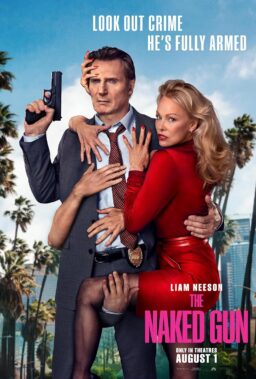Richard Farnsworth, who basked in glory last April as the oldest man ever nominated for an Academy Award, died of a self-inflicted gunshot wound Friday at his ranch in Lincoln, New Mexico. He was 80.
His fiancee, Jewel Van Valin, revealed a secret Farnsworth had kept all through the Oscar hoopla: He had been diagnosed several years ago with terminal cancer.
“I was in the other room and I heard the shot,” she told the Associated Press. “He was in incredible pain today. He was going downhill.”
Farnsworth was nominated for his strong and true performance as the hero of David Lynch‘s “The Straight Story,” based on the life of an Iowa man named Alvin Straight, who wanted to visit a dying brother who lived 300 miles away in Wisconsin. Straight’s eyes were not good enough to drive a car, so he drove a lawn tractor all the way there.
“He was very ill in that movie,” Van Valin said, “but phenomenally he made it through. He didn’t want the world to know he was sick.”
When Farnsworth was offered the role, he initially turned it down because, he told me. he feared a bad hip might give him trouble. But Lynch assured him he’d make a special silicone seat on the tractor, “So I said, okay. I’m so glad I did. I’d hate to have got out there and not be able to finish it.”
I talked to Farnsworth in September of 1999 at the Telluride Film Festival, where “The Straight Story” had just premiered to a standing ovation. Using a cane and accompanied by Van Valin, he made his way down the street to the Floradora Saloon for a buffalo burger, his single daily martini, and some thoughts about acting in old age.
“I’ve almost been out of this business for 15 years,” he said. “Just ranching. The last film I did was pretty rowdy. It was called ‘The Getaway’ (1994). I come in at the last. But I didn’t have to use any four-letter words. I’ve never had to curse in a movie and I’m not about to start in now.”
Farnsworth thought of himself as a cowboy and a rancher, and spent most of his time on his spread in Lincoln, a town of 150 that bills itself “The Capital of Billy the Kid Country.” Its bank is famous because of the luminaries who stuck it up, and Pat Garrett once owned the hotel. He liked Stetson hats and cowboy boots, and Miss Van Valin always dressed like a schoolmarm in an old Western.
Farnsworth was a walking treasure of movie lore, one of the oldest active actors in Hollywood. He started in movies as a stunt man, he told me: “I roped and rodeo, and in 1937 Paramount put an ad in the paper that they wanted 200 riders for ‘Marco Polo.’ It was $7 a day to ride, and the wrangling was about $12 a day. I’d been working at a barn for $5 a week. I worked on the movie for five weeks and made enough money to buy a car, and that’s it. I stayed and did ‘Gunga Din’ the next year. That got me started. I did ‘The Day at the Races’ with the Marx Brothers. I was a steeplechase rider.”
He did stunt work for the great director John Ford, “but never as an actor, because he’d get a little bit hostile with actors. I couldn’t stand somebody shouting.” On the Ford pictures he became “as close as you can get” to Henry Fonda, and it was Henry’s daughter Jane who remembered the old cowhand when they were casting her movie “Comes a Horseman,” in 1978. That got him his first Oscar nomination, as best supporting actor.
“They wanted an old guy that could rope and ride,” he recalled. “I’d done that plenty as a stunt man. But when they called me over and showed me the script, God, there was so much in it that I didn’t think I could handle. Alan J. Pakula, who was directing it, said, ‘You’ll have 10 weeks to shoot it. We don’t shoot these in one day, you know. You might go for days and not even work.’ So I took the script and practiced. It seemed to go pretty good. I went back and I read a few lines with Jane Fonda, and Pakula says, ‘You do it just like that. You got the job’.”
In 1982, at 62, he got his first starring role, in “The Grey Fox,” as a stagecoach robber who gets out of jail after 33 years, finds stagecoaches have disappeared, and adjusts to modern times by robbing trains.
Farnsworth was a man who prided himself on his horsemanship and his daily work routine. When he arrived at the Oscars, he was in pain which again he blamed on the “bad hip,” but said he was going in for replacement surgery right after the awards. He lost the Oscar to Kevin Spacey (“American Beauty“) but “I feel well to have been nominated. I might not get a chance again.”
In “The Straight Story,” Farnsworth’s performance drew praise all over the world, especially for the quiet, no-nonsense way he expressed his deep feelings about his dying brother. He tells a priest who takes him in for the night: “I want to make peace. I want to sit with him. Look up at the stars. Like we used to do so long ago.”











